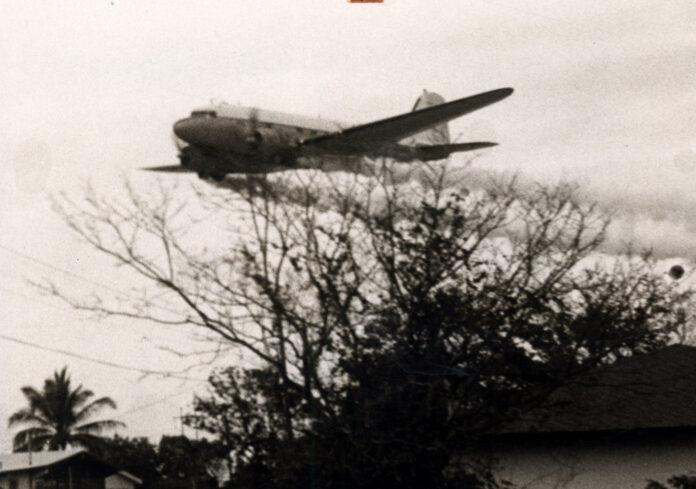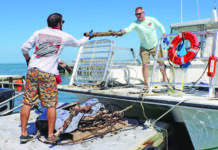The centuries-long battles with mosquitoes and the diseases they transmit within the tropical climate of the Florida Keys are well known.
In 1949, in an effort to combat these pests and their threat to public health, the Monroe County Anti-Mosquito District was authorized by an act of the Florida Legislature and later overwhelmingly approved by local referendum. In 1970, the name was changed to the Monroe County Mosquito Control District. It changed again in 2002 to the Florida Keys Mosquito Control District (FKMCD). But more than the name has changed for this independent special taxing district in the past 75 years.
Beginning in the mid-1940s, mosquito control in the Keys was conducted by a few individuals in Key West spraying DDT from a truck. After 1949, the Key West group was absorbed into the newly formed anti-mosquito district. Spraying by truck was expanded to the entire county and later supplemented by spraying from aircraft. Within a few years, it was determined that the mosquitoes in the Keys and elsewhere were becoming resistant to DDT, so throughout the 1960s several derivatives of DDT were used instead. In 1962, Rachel Carson’s book “Silent Spring” was published, changing the world of mosquito control forever. Reaction to the book led to the formation of the Environmental Protection Agency in 1970. Soon after, DDT and other chemically similar pesticides were banned from use in the U.S.
The use of DDT over a 30-year span is credited with saving millions of lives worldwide and helping to temporarily eliminate some of the disease-carrying mosquitoes in much of the United States and Florida, including the Keys. For the next 30 years, without major threats of mosquito-vectored diseases, mosquito control districts, including FKMCD, were able to focus mainly on nuisance mosquito control, which again produced great results. This helped Florida and the Florida Keys become a year-round tourist destination, which contributed to a thriving economy. In addition, the science of mosquito control continued to expand with an increasing focus on protecting our fragile ecosystems.
Guided by the goal of continuous improvement, FKMCD has transitioned from a very humble beginning to one of the leading mosquito control operations in the world. Today, our team of scientists and technicians use the most effective and efficient equipment, including highly advanced helicopters with precision dispensing systems. Our chemical technology has advanced from using almost exclusively broad-spectrum pesticides to using mostly new- generation larvicides when appropriate. These larvicides are non-toxic to humans and animals, protect our environment and are very effective in controlling billions of mosquitoes before the public ever sees them.
Since the year 2000, increased international travel, along with other factors, have contributed to a drastic increase in the number of mosquito-borne disease cases worldwide. In 2023 the Florida Department of Health reported that about 30 Florida counties had recorded local transmission of five different mosquito-borne diseases. This includes Miami Dade County, currently witnessing the largest dengue fever outbreak in the U.S. in more than 70 years. Fortunately, our science-based, proactive and robust mosquito control efforts at FKMCD have kept the Keys disease-free for another year, but we remain on high alert as we enter the 2024 season.
As we come full circle with the return of these diseases to Florida, we are much better prepared today to combat them. The mosquito control industry is now in the midst of a huge technological boom that promises to continue developing new products that yield improved results and economic value for the Keys. Only time will tell what new technologies lie in the future for mosquito control. We strive to do our best, and with the continued support from our community, FKMCD is working hard to remain at the forefront in science and best practices so that paradise will remain paradise for our residents and visitors.
To help us celebrate our 75 years of service to the Florida Keys and learn more about our comprehensive efforts to control mosquitoes, please visit us at keysmosquito.org.
Sincerely,
Phil Goodman
FKMCD
Commissioner, District II and board chair























